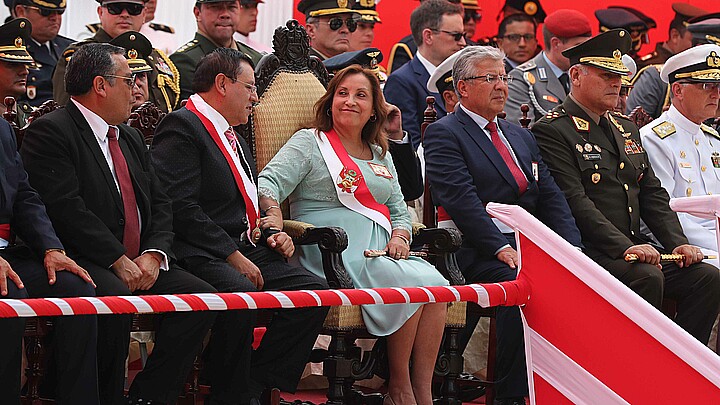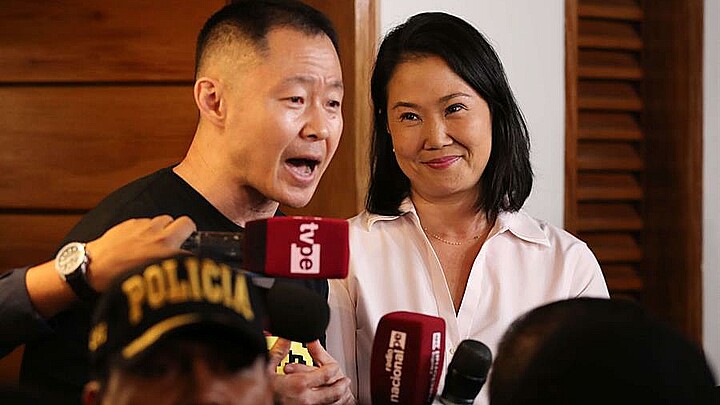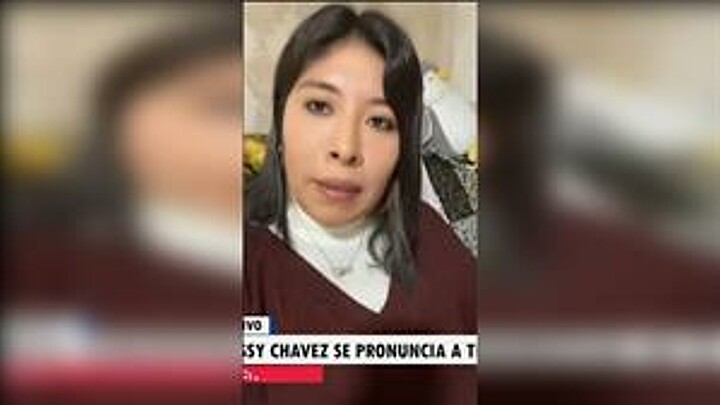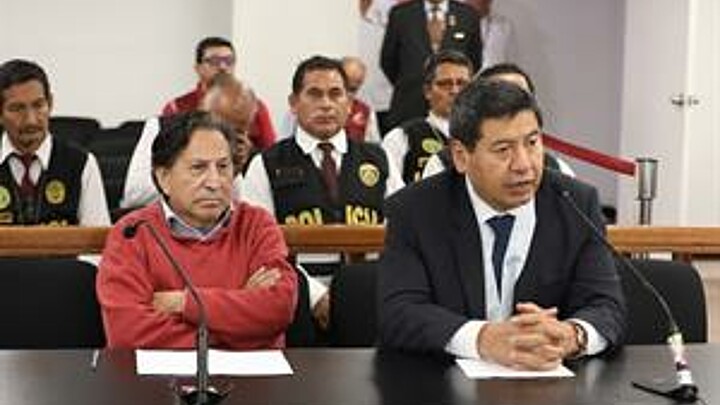Politics
Hours after Peru's attorney general is accused of corruption, she charges the president with murder
The South American country’s attorney general filed charges against the president just hours after she was accused of corruption
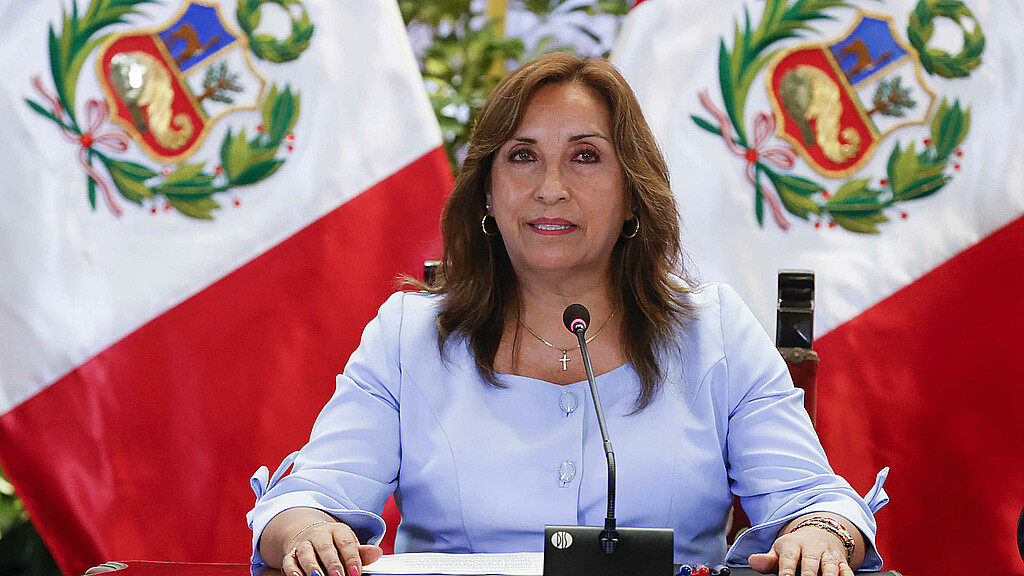
November 29, 2023 6:58am
Updated: November 30, 2023 8:25am
Just hours after being accused herself of corruption, Peru’s attorney general filed charges President Dina Boluarte for the deaths of a couple dozen protestors who were killed during anti-government demonstrations.
Attorney General Patricia Benavides brought the charges in a constitutional complaint on Monday, a legal move Boluarte described as “a despicable political maneuver.”
Boluarte, the first woman to lead Peru, ascended to the presidency after she successfully formed a coalition with the South American country’s conservative congress.
Her transition came amid former leftist President Pedro Castillo’s impeachment after he was accused of trying to illegally dissolve the legislature. Her presidency comes in the midst of continuous transition in the South American country, and she is the sixth head of state to lead her country in only five years.
The transitory state of Peru has led to clashes between left and right organizations and protestors have been injured or killed in two demonstrations now known as the December 2022 Ayacucho massacre, which left 10 dead, and the January 2023 Juliaca massacre, which left 18 dead.
Benavides filed the complaint after an 11-month investigation, but just hours after she herself was accused of leading a corruption ring.
The attorney general was accused of allegedly dropped investigations against lawmakers as a quid pro quo for them to appoint Benavides’ allies to important positions in the judicial branch.
Boluarte has accused Benavides of filing the charges against her to cover up her own legal jeopardy.
Benavides fired back, denying the president’s allegations and fired a prosecutor who accused her of corruption. She has also dismissed calls for her resignation.
The situation between the attorney general and president is quickly heating up into a political standoff, a new chapter in Peru’s transitory period.
During Castillo’s attempted coup of congress, the former president tried to dissolve the legislature, but Boluarte, then vice president, quickly gained the confidence of the judiciary to help her quell the situation.
After staving off the coup, Boluarte was sworn in as Peru’s president to finish Castillo's term in office.
But Castillo’s ousting did not go over well with his supporters. Leftist protestors took called for his reinstatement, and tried to prove their point by occupying airports and obstructing some of the country’s major highways.
Boluarte's mobilized police to disperse the protests, which delayed air and ground traffic, and holding up food and gasoline deliveries throughout the country. It also stranded thousands of travelers, causing damage to the country’s tourism industry.
From December 2022 through February 2023, an estimated 49 people were killed in confrontations with police, according to Peru's Ombudsperson's Office.
Human rights groups have blamed the government since many of the people killed died from bullet wounds.
The Inter-American Commission on Human Rights (IACHR) as part of the Organization of American States (OAS) made a determination in May that “a disproportionate, indiscriminate, and lethal use of force was a major element of the State response to the protests.” In a report published in May,
Benavides started her investigation in January but did not file charges against the president until this week after she was accused of corruption, raising questions.
The attorney general announced in a televised address that she filed a “constitutional complaint” for murder charges against the president and Prime Minister Luis Alberto Otárola.
The charges are unlikely to lead to any successful prosecution however, since Peru has many of the same executive privileges as the United States.
Peru’s head of state cannot be criminally prosecuted while serving their term in office, and can instead only be impeached and prosecuted thereafter. The rule stands for parliamentarians as well.
In lieu of criminal prosecution, the attorney general can file a constitutional complaint, which must be reviewed by a congressional committee.
But even if the complaint were to be approved by a legislative majority, prosecutors would have to wait until after a president or prime minister leaves office to begin proceedings.
Boluarte's presidency ends in July 2026.

